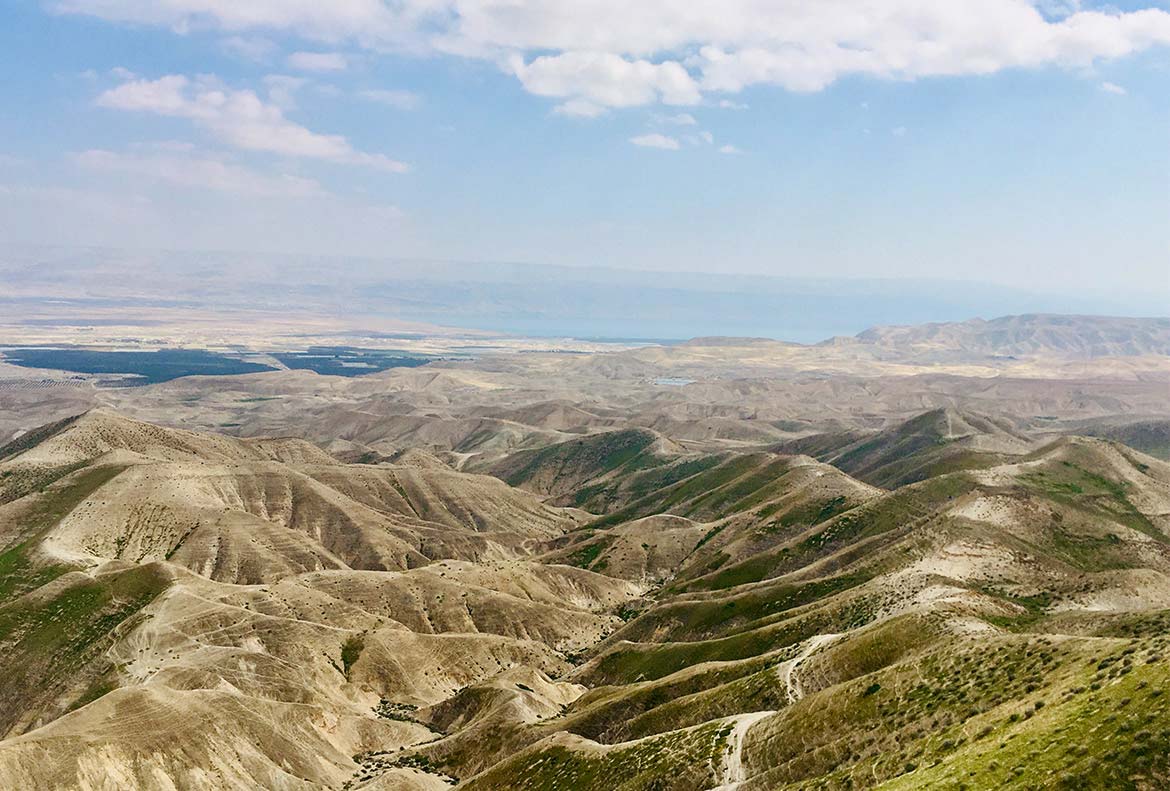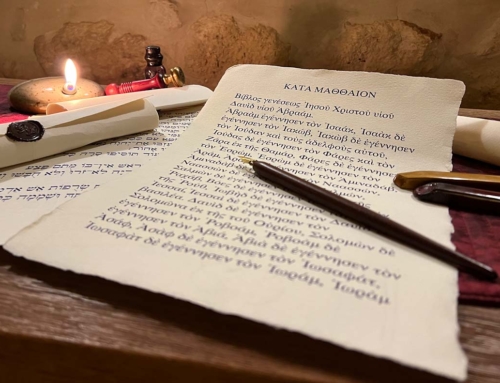To all the brothers and sisters of the Oases – Realities of Koinonia John the Baptist
Christ is risen!
“At once the Spirit drove him out into the desert, and he remained in the desert for forty days, tempted by Satan.” (Mark 1:12-13).
Dearest sister, dearest brother,
what need did Jesus have to go through the experience of the desert? The desert is the place of solitude, silence and precariousness, favourable circumstances for an encounter with the Lord and His Word. Jesus, however, is forced into this very place by the Holy Spirit immediately after the Father has made His voice and words of predilection heard to Him.
Jesus is in the wilderness primarily to measure himself against an ancient character, created before the creation of the world and what it contains: Satan, literally the ‘enemy.’ In the New Testament he is called the ‘devil,’ that is, the divider, the one who gets in the way to separate. According to the English translation, the devil shows up in the wilderness to ‘tempt’ Jesus, but the Greek verb in the Gospel text is peirazo, that is, ‘to put him to the test,’ ‘to verify,’ ‘to test’ the reactions of the subject under examination with the changing of the circumstances. The same verb can be found in a well-known passage in Genesis, when “God tested Abraham” (22:1) and commanded Him to offer up his son Isaac. Here again we can translate, “God wanted to ‘test’ Abraham,” to check where his heart was and to discern his priorities.
In the desert, then, the enemy par excellence performs almost a providential function: to bring out what is in the heart, the true intentions that motivate our actions. As is well known, Jesus passed the test effortlessly, showing full trust and abandonment in the Father. As for us, the desert is the place where masks fall off; it is the place of truth, where we are, who we are, without ambiguity or pretence.
Our pace of life requires us to be in constant motion, robust and always rising to the occasion, trying to keep up with this fast and sometimes demanding train that is called life, and includes work, responsibilities, family, and so on. In this race, the real wilderness moments may be the bereavement of a loved one, an illness, a separation, or any other situation that tears and ruptures. Although burdensome and a cause of suffering, these powerful moments are an opportunity for maturation and greater awareness of the value of life, love, the vocation to be John the Baptist, and, in short, of all that remains and does not wither. Hence the need to ‘stop,’ in the broadest sense, and especially to put in place a strategy that can help us to avoid distraction, to look deeply into our hearts and to see what our real priorities in life are: this is what it means to enter Lent.
Dear sister, dear brother, in this “tempo forte” in addition to the traditional practices which should not be neglected, such as devoting more time to prayer, fasting and almsgiving, I invite you to make heroic gestures that break the routine of our lives. Concretely: creating greater fellowship with brothers and sisters with whom we have had no enthusiasm or opportunity so far; visit the sick or needy; find moments to share our testimony. Let us open ourselves to the action of the Spirit in us and allow Him to ‘test’ us, without fear, but rather with courage, creativity, radicality, thus expressing our love for the Lord and for our brothers and sisters.
I wish you a blessed desert time, as we await a joyful and bright Easter of resurrection.
Rome, 12th February, 2024
Fr. Giuseppe De Nardi
Pastor General







